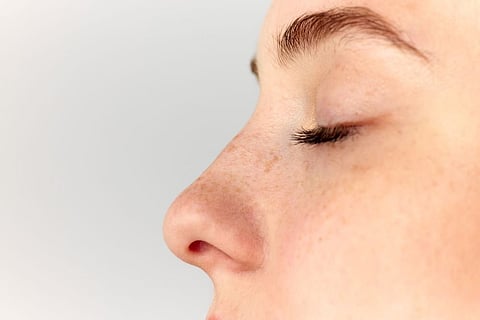THURSDAY, Oct. 19, 2023 (HealthDay News) -- For adults with nasal obstruction associated with a deviated nasal septum, septoplasty is a more effective intervention than a defined medical management regimen, according to a study published online Oct. 18 in The BMJ.
Sean Carrie, M.B., Ch.B., from the Newcastle Upon Tyne Hospitals NHS Foundation Trust in the United Kingdom, and colleagues conducted a randomized controlled trial at 17 otolaryngology clinics involving 378 adults newly referred with symptoms of nasal obstruction associated with septal deviation and at least moderate symptoms of nasal obstruction. Participants were randomly assigned to receive septoplasty or defined medical management, including nasal steroid and saline spray for six months (188 and 190 patients, respectively).
The researchers found that the mean Sino-Nasal Outcome Test-22 (SNOT-22) scores at six months were 19.9 and 39.5 in the septoplasty and medical management arms, respectively. Higher baseline symptom severity scores predicted greater improvement in SNOT-22 scores. In participants in the septoplasty group, there was more improvement in quality-of-life outcomes and nasal airflow measures. Seven participants (4 percent) had readmission to hospital with bleeding after septoplasty and 20 participants (12 percent) required antibiotics for infections.
"Baseline Nasal Obstruction and Symptom Evaluation scores can estimate the likely improvement in symptoms and guide decision-making for patients and clinicians," the authors write. "The authors recommend that adults presenting with nasal obstruction associated with a deviated nasal septum should be offered septoplasty."
Abstract/Full Text
Editorial


